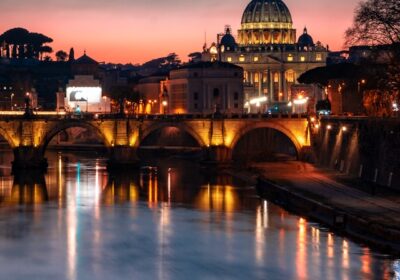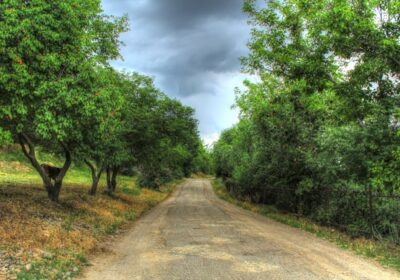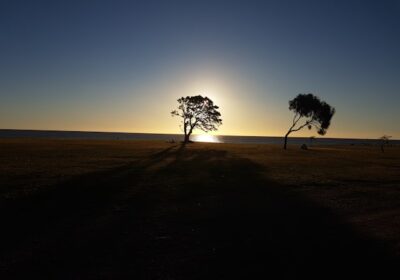Israel: A Journey Through History and Innovation
Israel, a country where ancient history meets cutting-edge innovation, offers a unique and enriching travel experience. From the sacred sites of Jerusalem to the bustling streets of Tel Aviv, and from the serene beauty of the Dead Sea to the stunning landscapes of the Negev Desert, Israel captivates visitors with its diverse attractions and deep cultural heritage. This guide will take you through the highlights of Israel, showcasing its historical significance and modern vibrancy.
Arrival and First Impressions
Israel’s major international airport, Ben Gurion Airport in Tel Aviv, serves as the primary gateway for travelers. Upon arrival, visitors are often struck by the country’s rich tapestry of cultures, the warmth of its people, and the fascinating blend of ancient and modern influences.
Jerusalem: The Eternal City
The Western Wall
The Western Wall, also known as the Wailing Wall, is the most sacred site in Judaism. Located in the Old City of Jerusalem, this ancient limestone wall is a remnant of the Second Temple and a place of prayer and pilgrimage. Visitors can leave written prayers in the crevices of the wall and experience the profound spiritual atmosphere.
The Church of the Holy Sepulchre
The Church of the Holy Sepulchre is one of the holiest sites in Christianity. Located in the Christian Quarter of the Old City, the church is believed to be the site of Jesus’ crucifixion, burial, and resurrection. The church’s rich history and stunning architecture make it a must-visit destination for pilgrims and history enthusiasts alike.
The Dome of the Rock
The Dome of the Rock, an iconic symbol of Jerusalem, is located on the Temple Mount. This Islamic shrine, with its golden dome and intricate mosaics, is one of the most beautiful and significant landmarks in the city. The site holds religious importance for Muslims, Jews, and Christians, making it a focal point of interfaith significance.
Tel Aviv: The Modern Metropolis
The White City
Tel Aviv’s White City is a UNESCO World Heritage site known for its unique collection of Bauhaus-style buildings. Constructed in the 1930s by German-Jewish architects, these white, minimalist structures reflect the city’s modernist spirit. A walking tour of the White City offers a glimpse into Tel Aviv’s architectural heritage.
Jaffa
Jaffa, one of the oldest port cities in the world, is now a vibrant part of Tel Aviv. The historic old town, with its narrow alleyways, ancient stone buildings, and bustling flea market, exudes charm and history. The Jaffa Port, with its picturesque views of the Mediterranean Sea, is a great place to relax and enjoy the local cuisine.
Rothschild Boulevard
Rothschild Boulevard is the heart of Tel Aviv’s vibrant urban life. Lined with cafes, restaurants, and bars, this lively street is perfect for a leisurely stroll. The boulevard is also home to significant cultural landmarks, including the Independence Hall, where Israel’s Declaration of Independence was signed.
The Dead Sea: The Lowest Point on Earth
Floating Experience
The Dead Sea, the lowest point on Earth, offers a unique and therapeutic floating experience. Due to its high salt content, the water is incredibly buoyant, allowing visitors to float effortlessly. The mineral-rich mud of the Dead Sea is renowned for its healing properties, making it a popular destination for wellness seekers.
Masada
Masada, a UNESCO World Heritage site, is an ancient fortress overlooking the Dead Sea. This historic site is known for the heroic stand of Jewish rebels against the Roman Empire in the first century CE. Visitors can hike up the Snake Path or take a cable car to the top, where they can explore the ruins and enjoy breathtaking views.
The Galilee: A Region of Natural Beauty and Spiritual Significance
Sea of Galilee
The Sea of Galilee, also known as Lake Kinneret, is a place of great religious significance and natural beauty. It is the site of many events in the life of Jesus, making it a major pilgrimage destination for Christians. The serene waters, surrounded by lush landscapes, provide a peaceful retreat for visitors.
Nazareth
Nazareth, known as the childhood home of Jesus, is a city rich in biblical history. The Basilica of the Annunciation, where it is believed the Angel Gabriel announced to Mary that she would give birth to Jesus, is a key attraction. The city’s bustling markets and historic sites offer a glimpse into its vibrant cultural heritage.
Golan Heights
The Golan Heights, a region of strategic and historical importance, offers stunning landscapes and outdoor activities. Visitors can explore archaeological sites, enjoy hiking trails with panoramic views, and visit the numerous wineries producing high-quality Israeli wines. The area is also home to several nature reserves and hot springs.
Eilat: The Red Sea Riviera
Coral Beach Nature Reserve
Eilat, located on the Red Sea, is a popular destination for beach lovers and water sports enthusiasts. The Coral Beach Nature Reserve is one of the best places for snorkeling and diving, with vibrant coral reefs and diverse marine life. The clear, warm waters of the Red Sea make it an ideal spot for underwater exploration.
Dolphin Reef
Dolphin Reef in Eilat offers a unique opportunity to swim and interact with dolphins in their natural habitat. The ecological site promotes conservation and education, allowing visitors to learn about these intelligent creatures while enjoying a memorable encounter. The tranquil beach and lush surroundings add to the experience.
Timna Park
Timna Park, located in the Negev Desert near Eilat, is known for its stunning rock formations and ancient copper mines. The park’s highlights include the impressive Solomon’s Pillars, the Mushroom, and the ancient Egyptian Temple of Hathor. Visitors can enjoy hiking, cycling, and even hot air balloon rides to explore the park’s natural beauty.
Practical Tips for Visitors
Best Time to Visit: The best time to visit Israel is during the spring (March to May) and autumn (September to November) when the weather is mild and pleasant. The summer months (June to August) can be very hot, especially in the desert regions, while winter (December to February) can bring cooler temperatures and rain in some areas.
Transportation: Israel has a well-developed transportation network, including buses, trains, and domestic flights. The Israel Railways system connects major cities, while Egged buses offer extensive coverage throughout the country. Car rentals are also a popular option for exploring at your own pace.
Accommodation: Israel offers a wide range of accommodation options, from luxury hotels and boutique guesthouses to budget hostels and kibbutz stays. Booking in advance is recommended, especially during peak travel seasons and major holidays.
Cultural Etiquette: Israel is a culturally diverse country with a mix of religious and secular communities. It is important to respect local customs, especially when visiting religious sites. Modest dress is required in holy places, and it is advisable to avoid public displays of affection in more conservative areas. Learning a few basic Hebrew phrases can enhance your travel experience.
Reflection and Farewell
As my journey through Israel came to an end, I was deeply moved by the country’s rich history, diverse landscapes, and vibrant modern culture. From the ancient streets of Jerusalem and the bustling markets of Tel Aviv to the tranquil shores of the Dead Sea and the scenic beauty of the Galilee, Israel offers a diverse and unforgettable travel experience. Whether you are a history enthusiast, a nature lover, a spiritual seeker, or a culinary explorer, Israel promises an enriching and memorable visit.
Plan your trip to Israel and discover the timeless beauty and dynamic energy of this extraordinary country.






Leave feedback about this